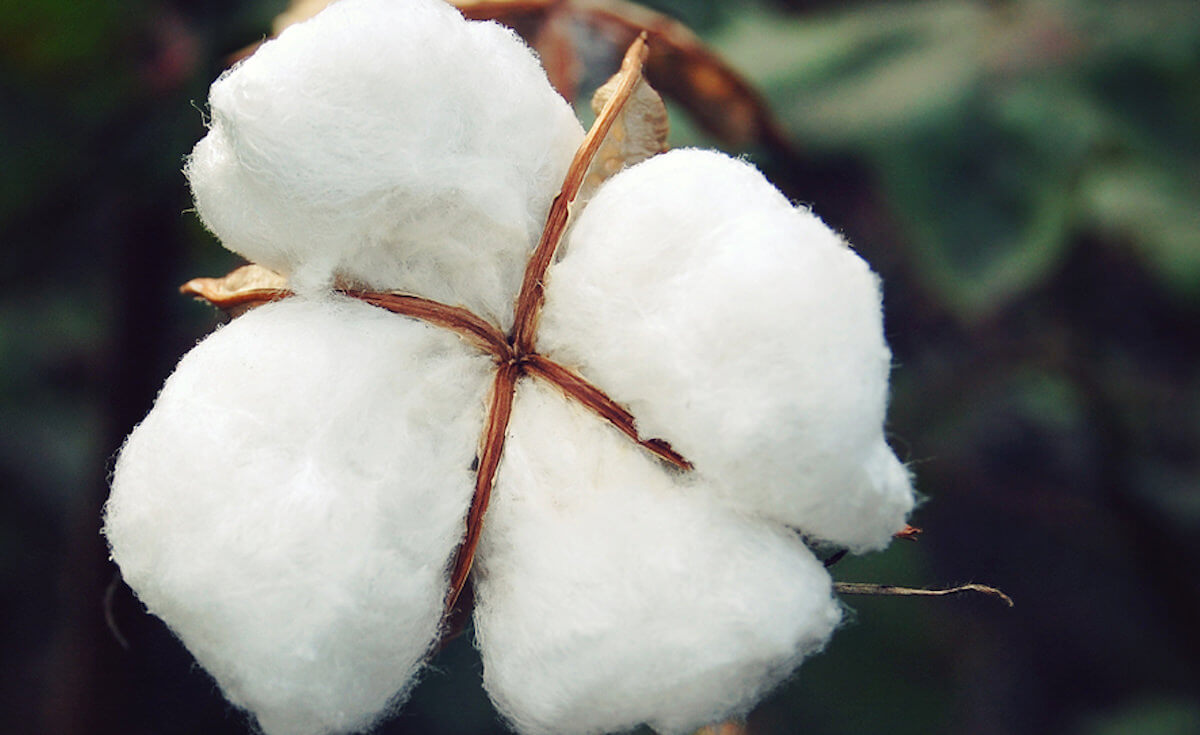
Yes organic cotton really is better. Why organic cotton is the only choice for a sustainable future.
Over a decade ago, we at Nomads made the decision to use cotton the way nature intended. When we first started out on our sustainable fashion journey we were really only using hemp. But undiluted hemp makes wrinkled, faded clothing that limited our imaginations. We knew that in order to develop a fabric that could match our designs, we were going to have to introduce some kind of blend to help us get the quality, and versatility we were looking for.
Why use cotton at all?
Cotton – either 100% or as a blend- is the most produced, and used fabric on the planet today. Along with hemp, cotton is one of the oldest plant-to-fabric crops in the world. The first sign of cotton use was found in India around 6,000 B.C. Like hemp, the widespread use of cotton stemmed from its easy transition from plant to fabric – it needs no processing or chemicals, and can go from the stem to a spinning wheel. Cotton is almost entirely made of cellulose, making it breathable, and naturally absorbent, and it takes dye well. It its natural state, and location, it grows relatively quickly and easily, and is incredibly versatile (think jeans to t-shirts, to light summer dresses)…so what happened?
Traditional cotton is one of the most toxic crops on the planet
Let’s face it, regular cotton is a fraction of the price of organic, but when we looked into it, there was no way we were willing to go that route. Mainstream cotton and/or GMO cotton is one of the great evils of the environment. Non organic cotton, uses mountains of pesticides and oceans of water. In fact we were so horrified by the toxic load of cotton, that we have sucked up the extra costs associated with organic cotton in our clothing for years. That’s right: regular cotton is so evil, we chose organic instead at no extra cost to our customers.
Toxic overload
Mainstream cotton crops endure the third highest pesticide use in the US after soy and corn. Monstanto-produced GMO cotton (known as BT cotton )was developed to address this issue by producing an insecticide that kills off its major pests, but the pests have shown early resistance, and most of those GMO crops are now also routinely doused with pesticides with disastrous effects on both land and farmers (often poor third world families). According to the World Health Organization up to 20,000 deaths each year are caused by pesticide poisoning in developing countries. And that doesn’t include the cost to fish and wildlife…
Water overload
Cotton is a very water-hungry crop. Did you know that it takes over 2,700 litres of water to make one conventional cotton t-shirt, and almost 11,000 to make a pair of jeans? If you consider that the average person needs three litres of water to survive per day, that’s over ten year’s worth of someone’s clean water to make your jeans.
Let that sink in for a moment.
A decade’s worth of clean water…for your Levi’s.
Why use organic cotton?
Organic cotton has all the benefits of mainstream cotton, and GMO cotton, without the serious downfalls.
- Organic cotton is pesticide free! With the amount of pesticides used in mainstream cotton production, it would seem impossible to grow cotton without it. Not so! Organic cotton farms use healthy resilient soil to bolster crop health. If they need to bring in the big guns, they use vinegar, garlic, neem oil, and hydrogen peroxide…really.
- Less potable water use. Organic gardening practices use less “blue water” in their crop growth, relying more on grey water, and water recycling. In 2013-2014 organic production of cotton found a 91% reduction in blue water use, saving the equivalent of nearly 95,000 Olympic-sized swimming pools of fresh water compared to non-organic production according to the Soil Association.
- Genetic diversity. With organic gardening practices, seeds are developed slightly differently in every region. Seeds are collected and stored, and the strongest strains continue to develop and grow. With GMO production, more of the world uses only ONE type of seed. That means that if that crop ever fails, for any reason including some kind of pest or disease that has yet to develop, it could be a disaster. The more genetic diversity the better…for everyone.
- Fair trade. With organic cotton there are far more options for fair trade directly paid to smaller local farms. At Nomads we know where our cotton comes from, and that we are creating a sustainable local economy for that community.
For us at Nomads, there really was no way that we could go the GMO or mainstream cotton route, and we were (and are) willing to put our financial bottom line behind that decision. As we all know, in our capitalist system, voting with your wallet can be the best form of reEvolution. In this case, choosing organic can literally save the planet.